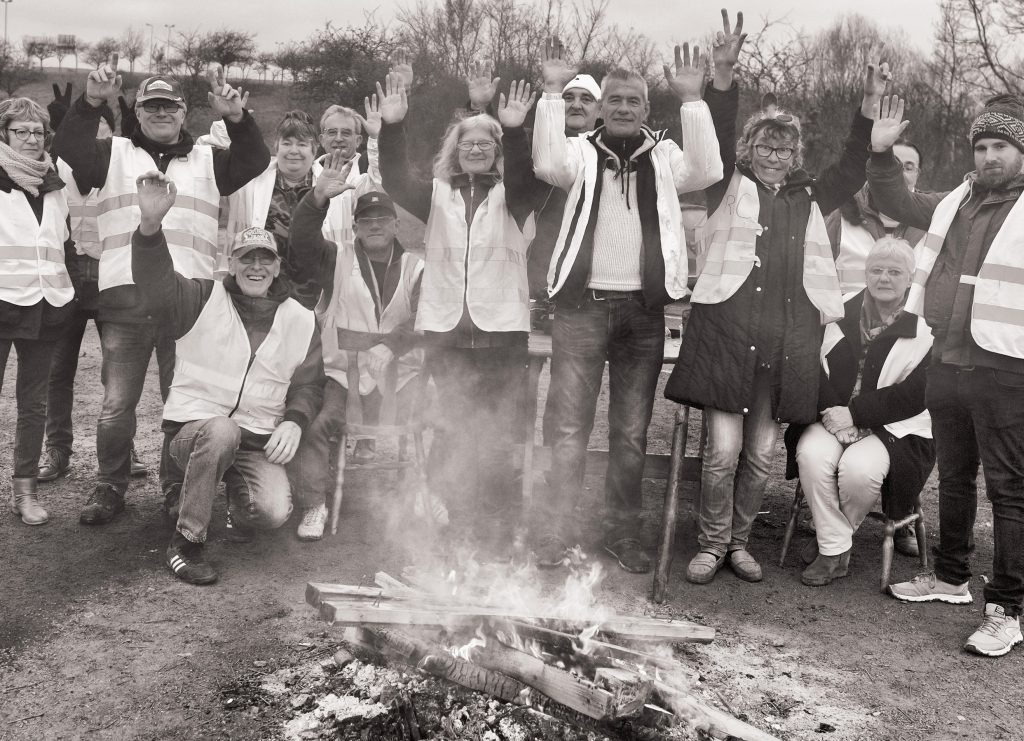LONDON — Yellow vest protesters in France have responded to government arrests, attacks and slanders by taking to the streets. Some 50,000 marched throughout France Jan. 5, according to the interior ministry — almost twice as many as the Saturday before. President Emmanuel Macron attacked them in a televised address as a “hateful mob” who target “journalists, Jews, foreigners and homosexuals.”
The yellow vests are a mainly rural and smaller town movement of workers, farmers and other small proprietors triggered by the crushing effects of the ongoing crisis of capitalism and attacks by the government aimed at making them pay for it. Their actions have forced some government concessions, but not enough to get demonstrators off the streets. Protests at toll booths, traffic circles and elsewhere continue to draw support from the majority of people, especially among the working class.
They view Macron, a former investment banker, as the president for the rich. His government has been “reforming” French laws and regulations to benefit the bosses and bankers. Next on his government’s agenda is to tighten regulations for unemployment pay and to cut thousands of public service workers.
The yellow vests continue to press for a higher minimum wage and other demands to ease the economic crunch on working people. And they have increasingly called for Macron to resign.
Macron’s government has deployed thousands of cops in an attempt to quell the protests. The interior ministry has written to local police telling them to clear protesters off the traffic circles and occupied toll booths. More than 147,000 cops were mobilized across France on New Year’s Eve as protesters organized marches. Thousands assembled on the Champs Élysées in Paris.
The government has used the fact that anarchist antifa groups, known in France as “casseurs,” have used the yellow vest protests, especially in Paris, to attack property and people.
‘No to Macron and his smears’
“I’m here to declare my opposition to Macron, to say ‘no’ to the labor law and also because he talked of us as a ‘hateful mob,’” Florian Dupuis, a Paris public librarian, told Militant reporters at the demonstration in the capital. She sported a yellow vest with her union’s name, CGT, written on it.
A traffic circle in Dieppe, Normandy, that was visited by Communist League members from the U.K. last month, has been reoccupied by protesters after they’d been driven off by cops Dec. 16.
“But the police repression is rough and protesters are playing a game of cat and mouse with the security forces,” yellow vest protester Arnold, 27, who asked that his last name not be published over concern of job victimization, told the Militant. “Many say they will not let go, they will continue, but the police harassment has discouraged some others.”
In a widely publicized move, police Jan. 2 arrested Eric Drouet, a lorry driver from a suburb of Paris. He’s often interviewed in the press as one of the leaders of the yellow vests. He became widely known for posting videos on Facebook of him speaking from the seat of his truck, calling for protests against higher fuel taxes that Macron threatened to impose.
His crime? Organizing an undeclared protest of a few dozen people to lay candles at the Champs Elysees for those injured or killed since the protests began. In Macron’s France it’s a crime if you call a protest without giving the government at least three days prior notice.
Le Figaro, owned by Dassault Group, the manufacturer of warplanes for the French air force, labeled Drouet a “violent extremist” because he supported the popular working-class Maidan uprising in Ukraine that overthrew the regime of Moscow-backed President Viktor Yanukovych in 2014.


